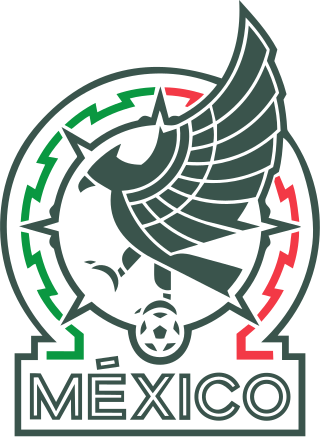Mexico
CONCACAF Third Place • 17th Appearance • Last Appearance: 2022

Mexico
2 – 1
Qualified

Costa Rica

Federación Mexicana de Fútbol
Host Nation • Third Time Hosting World Cup
Qualification Journey
Mexico secured their spot in the 2026 World Cup with a hard-fought 2-1 victory over Costa Rica in a qualifier at Estadio Azteca. This win not only guaranteed their place in the tournament but also marked a crucial moment of redemption for El Tri after a challenging qualifying campaign that saw them finish third in CONCACAF behind traditional rivals USA and Canada. The victory in front of a passionate 87,000-strong crowd at the iconic Azteca demonstrated Mexico’s resilience and fighting spirit when facing adversity.
The qualification campaign was marked by several key moments:
- Challenging start in CONCACAF qualifiers with unexpected setbacks
- Crucial victories against USA and Canada in must-win fixtures
- Improved form under Diego Cocca’s tactical guidance
- Final dramatic 2-1 win against Costa Rica to secure qualification
- Strong home record at Estadio Azteca throughout the campaign
Match Analysis: Mexico 2-1 Costa Rica
The qualification-clinching victory over Costa Rica was a masterclass in Mexican determination and home advantage. Hirving Lozano opened the scoring in the 34th minute with a perfectly timed run behind the Costa Rican defense, finishing clinically past Keylor Navas after excellent build-up play from Alexis Vega. The PSV winger’s goal sent the Azteca into raptures and provided El Tri with the early advantage they desperately needed.
Costa Rica equalized against the run of play in the 58th minute through Joel Campbell’s well-taken effort, silencing the massive crowd and setting up a nervy final half-hour. With World Cup qualification hanging in the balance, Mexico responded with characteristic fighting spirit. The winning goal came in the 77th minute when Santiago Giménez powered home a header from a corner kick, securing Mexico’s place in the 2026 World Cup and triggering scenes of jubilation throughout the stadium.
CONCACAF Qualifying Challenges
Mexico’s path through CONCACAF qualifying was more difficult than anticipated for a nation traditionally dominant in the region. Under Diego Cocca’s guidance, El Tri had to overcome early struggles and adapt tactically to compete with an increasingly competitive CONCACAF field. The emergence of Canada as a regional power and the continued strength of the United States created unprecedented challenges for Mexican football.
Key to Mexico’s eventual success was their improved defensive organization and the effective use of Estadio Azteca’s intimidating atmosphere. Crucial home victories against both the USA and Canada demonstrated El Tri’s ability to rise to big occasions, while their resilience in away fixtures showed the mental strength needed for World Cup competition. The team’s evolution throughout the campaign highlighted their adaptability and determination to maintain their World Cup tradition.
Squad Development and Tactical Evolution
The current Mexican squad represents a transitional generation combining experienced campaigners with emerging talents. Captain Hirving Lozano continues to provide pace and creativity from wide positions, while striker Santiago Giménez has emerged as a reliable goal threat. The midfield partnership of Edson Álvarez and Luis Romo offers the perfect balance of defensive stability and attacking thrust, controlling tempo in crucial matches.
Diego Cocca’s tactical approach emphasizes defensive solidity while maximizing Mexico’s traditional strengths in wide areas and set-piece situations. Operating primarily in a 4-3-3 formation, El Tri focuses on quick transitions and utilizing the pace of players like Alexis Vega and Uriel Antuna. This pragmatic style proved effective during qualifying, allowing Mexico to grind out results while maintaining their attacking identity.
2026 World Cup Co-Host Advantages
The 2026 FIFA World Cup presents Mexico with a unique opportunity as co-hosts alongside the United States and Canada. Playing on home soil provides significant advantages, including familiar conditions, passionate fan support, and reduced travel demands. Mexican venues including Estadio Azteca and Estadio BBVA will host matches, giving El Tri multiple opportunities to play in front of home crowds throughout the tournament.
As co-hosts, Mexico will benefit from extended preparation time and automatic qualification advantages. The expanded 48-team format provides additional pathways to success, while Mexico’s experience hosting major tournaments gives them tactical advantages. The combination of home support, venue familiarity, and reduced pressure could propel El Tri to their best World Cup performance since reaching the quarterfinals as hosts in 1970 and 1986.
This qualification marks Mexico’s 17th appearance in the FIFA World Cup, with their best performance being Quarter-finals in 1970 and 1986 as hosts. The 2026 tournament offers El Tri another chance to reach the quarterfinals on home soil and potentially achieve their long-held dream of advancing to the World Cup semifinals for the first time in their history.
